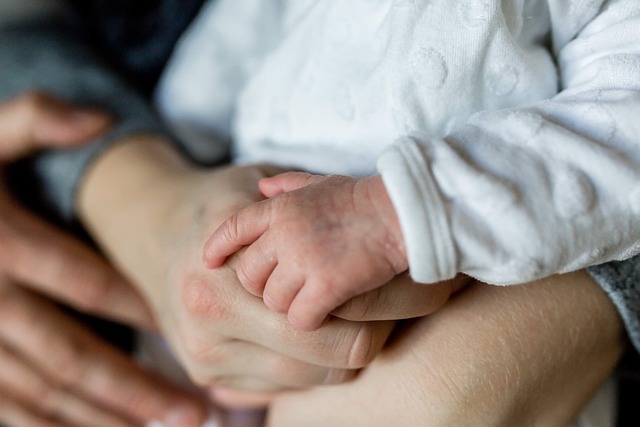Child welfare legal services in Oregon, especially within Multnomah County, are essential for protecting families and children involved in DHS child welfare cases. They balance parental rights protection with safeguarding vulnerable kids, offering crucial support to parents through guidance and representation. Multnomah County's child advocacy groups advocate for both family interests and the child's best interests, guided by knowledgeable professionals, fostering a balanced approach in these sensitive Oregon family law cases. Understanding the complex child protective services law is vital for families to actively participate in decisions that shape their future. Engaging with services like DHS or Multnomah County requires proactive communication and legal counsel from experts in Oregon family law to navigate procedures and advocate for fair outcomes.
Protecting family interests is a paramount concern in child welfare situations, where delicate balances must be struck between ensuring child safety and preserving familial bonds. This article explores critical aspects of Oregon family law and child welfare legal services, focusing on Multnomah County’s child advocacy system. We delve into the complexities of DHS child welfare cases, highlighting the importance of parental rights protection within the confines of stringent child protective services law. Understanding these dynamics is essential for navigating justice in such sensitive matters.
- Understanding Child Welfare Legal Services and Their Role in Protecting Families
- Parental Rights Protection: A Crucial Aspect of Oregon Family Law in DHS Child Welfare Cases
- Navigating Multnomah County Child Advocacy: Ensuring Justice for All Involved
- The Complexities of Child Protective Services Law and Its Impact on Family Dynamics
- Strategies to Safeguard Family Interests When Engaged with Child Welfare Services
Understanding Child Welfare Legal Services and Their Role in Protecting Families

Child welfare legal services play a pivotal role in protecting families and ensuring the well-being of children involved in DHS child welfare cases. In Oregon, including Multnomah County, these services are designed to navigate complex legal landscapes related to child protective services law. The primary focus is on upholding parental rights protection while safeguarding vulnerable children.
These legal services offer crucial support to families by providing guidance and representation throughout the entire process. They help parents understand their rights and obligations, ensuring they remain informed and involved in decisions affecting their children. By employing knowledgeable professionals, Multnomah County child advocacy groups can advocate for both the family’s interests and the child’s best interests, fostering a balanced approach to these sensitive cases.
Parental Rights Protection: A Crucial Aspect of Oregon Family Law in DHS Child Welfare Cases

In Oregon, particularly within Multnomah County child advocacy circles, protecting family interests is a cornerstone of the DHS child welfare process. Parental rights protection plays a pivotal role in this legal landscape, as it ensures that parents are not only informed but also empowered to defend their parental status during child protective services (CPS) cases. These rights extend beyond mere notification; they encompass opportunities for input and participation in decisions affecting their children’s well-being.
Oregon family law provides a robust framework for preserving parental rights in DHS child welfare cases. This involves giving parents the chance to challenge any potential removals, visitations restrictions, or other CPS-related measures. By offering legal services tailored to these situations, families gain clarity and advocacy, ensuring their interests are not overshadowed by the complexities of child welfare proceedings.
Navigating Multnomah County Child Advocacy: Ensuring Justice for All Involved

Navigating Multnomah County’s Child Advocacy system is a critical step in ensuring justice for all involved in child welfare cases. This robust framework, driven by dedicated professionals, aims to protect the rights and interests of both children and families under Oregon family law and DHS child welfare regulations.
Multnomah County offers comprehensive legal services for parents, focusing on parental rights protection within DHS child welfare cases. Their Child Advocacy Center serves as a central hub where various specialists collaborate to provide support and guidance throughout the process. Understanding the intricate web of child protective services law is essential for families navigating these challenging situations, empowering them to actively participate in decisions affecting their future.
The Complexities of Child Protective Services Law and Its Impact on Family Dynamics

The intricacies of Child Protective Services (CPS) law can significantly impact and complicate family dynamics, especially in situations where parental rights are at stake. These legal processes, designed to protect children’s well-being, often navigate complex terrain when considering the best interests of both the child and their biological or legal guardians. In Oregon, including Multnomah County, where robust child advocacy programs exist, CPS cases are governed by a web of state laws and regulations under DHS (Department of Human Services).
The Child Welfare Legal Services play a pivotal role in these dynamics. They ensure that parental rights are protected while also advocating for the child’s safety and stability. However, the process can be labyrinthine, involving numerous hearings, legal arguments, and evidence presentations. This complexity demands families, especially those from diverse backgrounds, to have a deep understanding of their rights and the implications of various outcomes. It’s crucial for parents to be actively involved in these cases to foster positive family dynamics despite the challenging circumstances.
Strategies to Safeguard Family Interests When Engaged with Child Welfare Services

When engaged with child welfare services, such as DHS child welfare cases or Multnomah County child advocacy, safeguarding family interests requires a strategic approach. One key strategy is proactive communication, where families should clearly articulate their goals and concerns to caseworkers from the onset. This includes understanding and asserting parental rights protection under Oregon family law and the child protective services law, ensuring every decision respects their involvement and authority in their child’s life.
Additionally, seeking legal counsel from experts in Oregon family law is crucial. Lawyers specializing in these cases can provide invaluable guidance on navigating complex procedures, challenging adverse decisions, and advocating for a fair outcome. They help families understand their rights and obligations, ensure procedural fairness, and protect against potential violations of parental rights during DHS child welfare cases.






